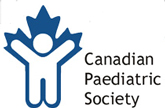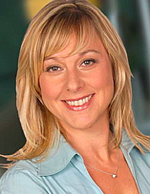![]()
Canada's largest daily newspaper
Baby death review 'daunting'
New views on shaken-baby syndrome could change findings in 220 cases dating as far back as 20 years
The Toronto Star, by Theresa Boyle, STAFF REPORTER, October 7, 2008
Ontario's chief forensic pathologist, who was the first to suggest a review of old "shaken-baby" deaths, says the province has a "daunting" task ahead as it looks at 220 cases to determine if anyone was wrongfully convicted.
The review will be a massive undertaking, not just because of the number of cases dating back as far as 20 years, but also because shaken-baby syndrome is being hotly debated in medical and scientific circles, Dr. Michael Pollanen says.
"It's a daunting task. It's a considerable amount of work. Resources will need to be dedicated to it," he says, noting the review will involve poring over almost five times as many cases as were examined in the lead-up to a public inquiry that probed the mistakes of disgraced pathologist Dr. Charles Smith.

Attorney General Chris Bentley said last week the province would examine 220 old baby deaths to determine if any resulted in miscarriages of justice. His pledge came on the heels of the release of the report from the Public Inquiry into Pediatric Forensic Pathology in Ontario, which probed how Smith's mistakes led to miscarriages of justice.
"However daunting the task ... it would be unsafe to rest a judgment" on an old scientific theory that is now in question, Bentley says.
"We want to make sure that nobody was convicted or nobody was subject to other legal proceedings ... based on science that would no longer be acceptable today because of the evolution of that science," Bentley explains.
Pollanen called for a review of shaken-baby deaths while testifying at the inquiry last December. The Smith fiasco prompted him to look back at cases involving infants. In that preliminary review alone, Pollanen found 142 deaths between 1986 and 2006 that had been attributed to shaken-baby syndrome.
A further review of old files by the chief coroner's office found 78 molre cases. It's has not yet been established how many of the 220 cases in question included trials, criminal convictions or child-protection involvement, but it's expected that a number did.
Shaken-baby syndrome is a form of abuse involving violent shaking of a child that results in potentially fatal brain damage. An orthodox view of the syndrome - now in dispute - holds that a "triad" of injuries is synonymous with shaken-baby. They include bleeding on the surface of the brain and in the back of the eye and swelling of the brain from lack of oxygen.
"You are inferring from the triad that it must be shaking," explains pathologist Dr. Chris Milroy, who served as an expert witness at the inquiry and was a professor at Britain's Sheffield university.
He explains that shaken-baby is different from other causes of death because it often involves a child who was alone with a caregiver at the time, so there are no witnesses. Evidence, including pathology, for other causes of death such as strangulations or stabbings tends to be more objective and independent, he says.
"There is a gap and there is an inference made that there is shaking, and that's where the question lies," Milroy says.
A large body of peer-reviewed clinical, pathological and radiological literature supports the contention that shaking an infant can produce such injuries, Pollanen notes.
"Then there's another body of (more recent) literature, which ... basically says that the forces required to generate the elements of the triad cannot be generated from shaking. (This literature) at least significantly questions that proposition."
The skeptics contend the injuries could also be caused from an impact to the head, even a fall from a very short distance, or from some underlying natural disease.
"It's a medical and scientific controversy," Pollanen says.
"I tend to say there is this other evidence that needs to be considered. ... I do not think it can be easily discounted. It represents an anomaly that needs to be somehow resolved."
Viewing the 220 old cases from these different perspectives will be a huge and complicated challenge, Pollanen acknowledges.
Ontario isn't the first jurisdiction to undertake such a review. Britain embarked on a massive re-evaluation of past cases in 2004, after a mother was wrongly convicted of killing two babies.
The attorney general's ministry is establishing a team of defence and Crown lawyers as well as a representative of the chief coroner's office, to look at the 220 old cases.
"We want to get them carefully looked at and any miscarriages of justice overturned," Bentley says.




